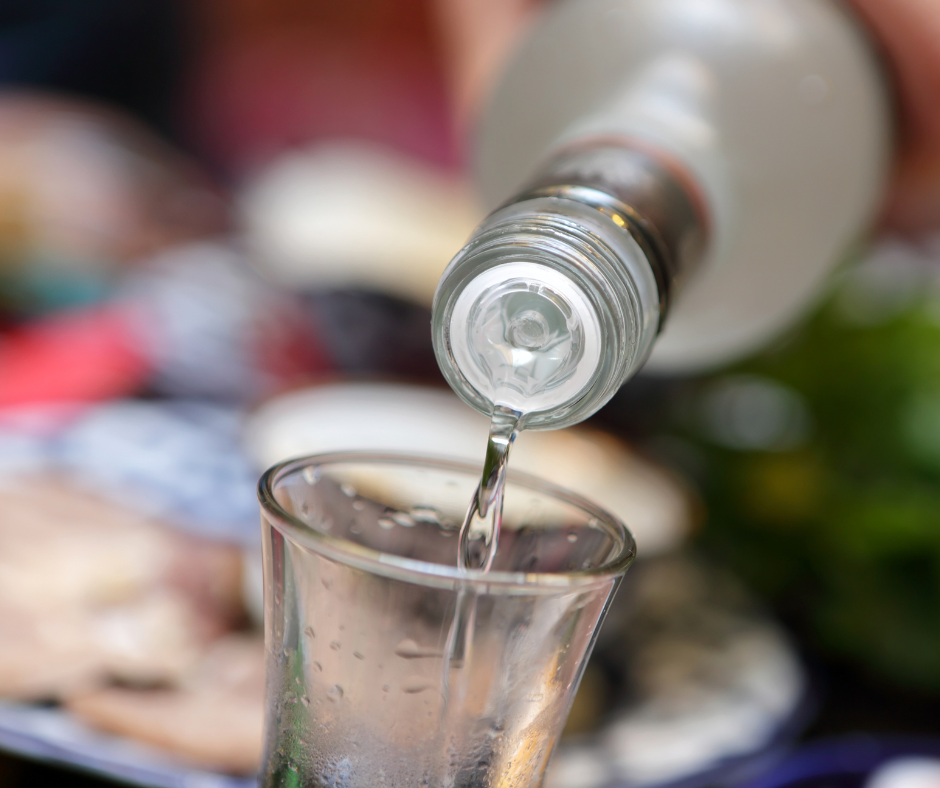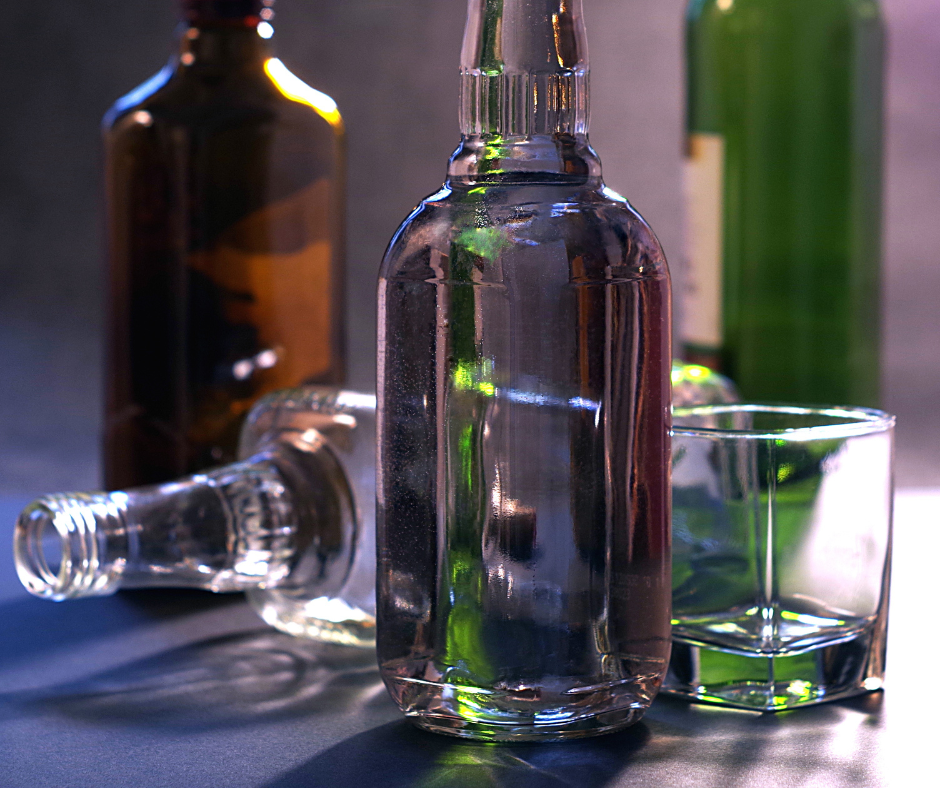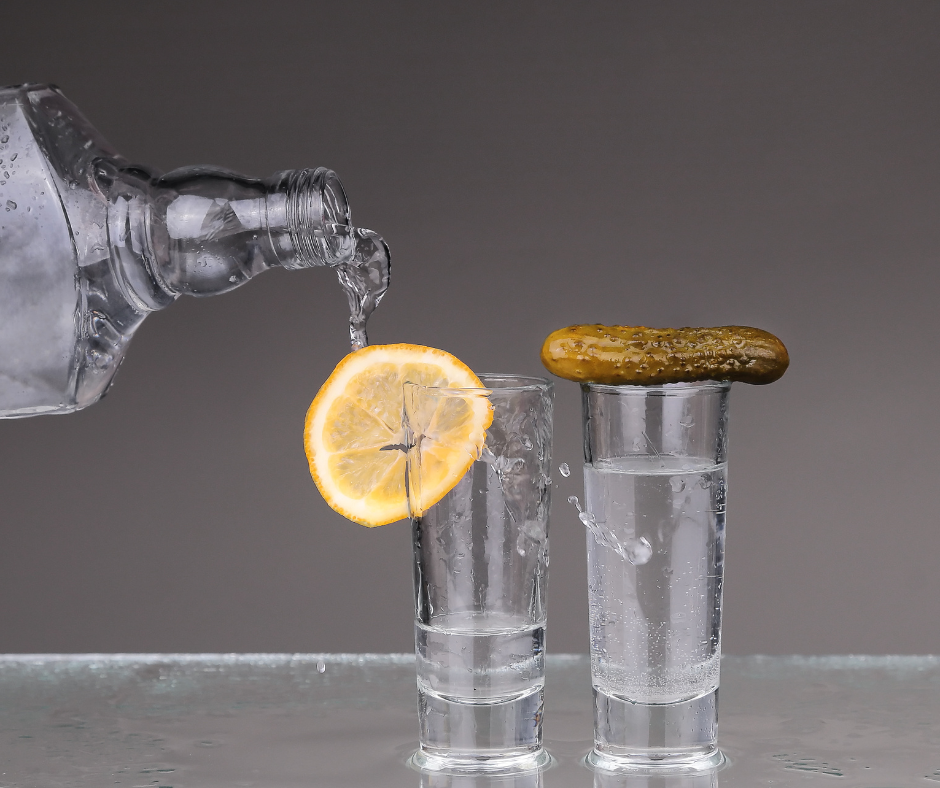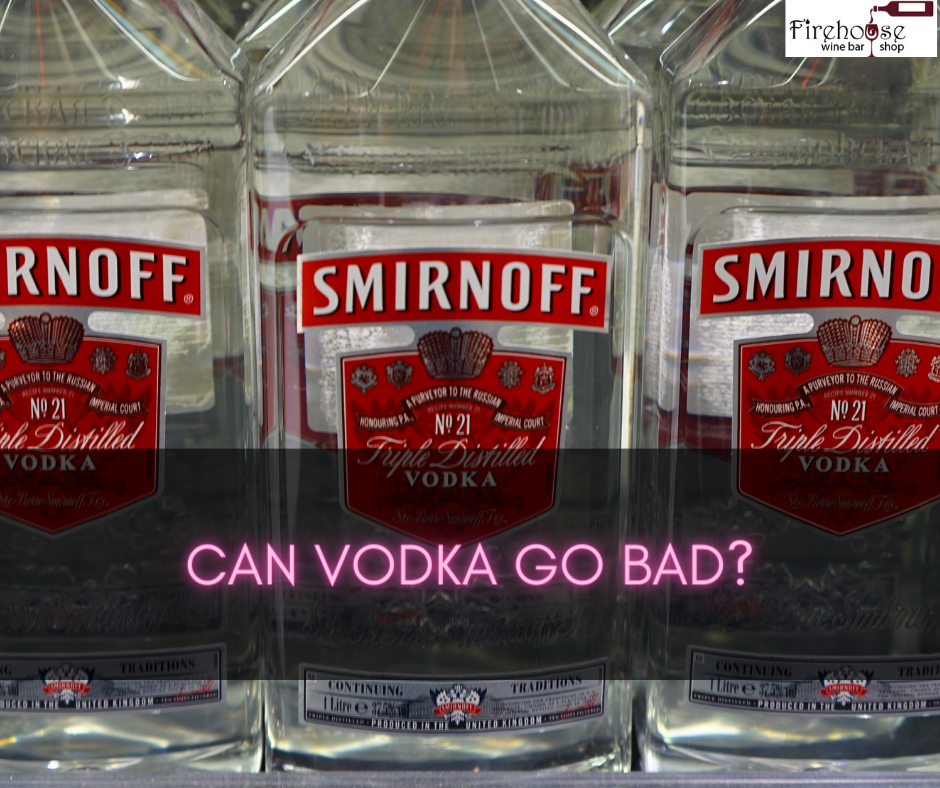Introduction
Whether you enjoy a vodka martini or a simple vodka soda, you may have wondered, ‘Can Vodka Go Bad?‘. In this article, we will explore the shelf life of Vodka, signs of spoiled Vodka, and safety tips to ensure you enjoy your drink responsibly.
What Is The Shelf Life Of Vodka?
Vodka is a distilled spirit with a high alcohol content, usually ranging from 35% to 50% ABV. Due to its high alcohol concentration, Vodka is considered to have an indefinite shelf life. Unlike some perishable food items, Vodka doesn’t spoil or develop harmful bacteria over time. Therefore, if stored properly, Vodka can be consumed for many years without adversely affecting taste or quality.
Importance Of Proper Storage Conditions
To maintain the quality and taste of your Vodka, it is essential to store it under proper conditions. Here are some key tips:
- Keep it sealed: Ensure your vodka bottle is tightly sealed to prevent evaporation and maintain its alcohol content.
- Store in a cool, dark place: Heat and sunlight can degrade Vodka and affect its taste. It is best to store vodka bottles in a cool, dark place to preserve their quality.
- Avoid temperature fluctuations: Extreme temperature changes can negatively impact Vodka. Avoid storing your Vodka in areas prone to temperature fluctuations, such as near a stove or refrigerator.
- Avoid exposure to oxygen: Oxygen can diminish the flavors of Vodka over time. Keep your vodka bottle tightly closed to minimize exposure to air.
By following these storage tips, you can ensure that your Vodka remains enjoyable and maintains its quality for an extended period.
In conclusion, Vodka does not typically go bad, thanks to its high alcohol content. Proper storage conditions, such as keeping it sealed, storing it in a cool, dark place, avoiding temperature fluctuations, and minimizing exposure to oxygen, can help maintain the quality and taste of your Vodka for years to come. Enjoy responsibly!

Factors Affecting Vodka Shelf Life
Vodka is known for its long shelf life but is not invincible. Several factors can affect its quality and safety over time.
Age, Oxidation, And Heat
Like other spirits, Vodka can age and oxidize. However, Vodka doesn’t necessarily improve with age, unlike whiskey or wine. The aging process can affect the flavor and smoothness of Vodka, making it less enjoyable to drink. Exposure to heat can also accelerate oxidation and spoilage.
Influence Of Sunlight, Direct Heat, Alcohol Content, And Impurities
Sunlight and direct heat can have a detrimental effect on Vodka. UV rays can break down the compounds in Vodka, leading to changes in taste and aroma. It’s best to store Vodka in a cool, dark place to preserve its quality.
The alcohol content of Vodka is a key factor in its shelf life. Vodka typically has a high alcohol content, ranging from 35% to 50%. This high alcohol concentration acts as a natural preservative, making it less susceptible to spoilage. However, once the bottle is opened and exposed to air, the alcohol content can gradually decrease over time.
Impurities in Vodka can also affect its shelf life. Poor-quality ingredients or improper distillation can lead to a higher likelihood of spoilage. Choosing reputable brands and storing Vodka properly is essential to ensure its quality.
Signs Of Spoiled Vodka And Safety Tips
While Vodka doesn’t typically go bad, there are signs that it may have spoiled. These signs include changes in color, texture, smell, or taste. If you notice any of these signs, it’s best to discard the Vodka to avoid any potential health risks.
To maximize the shelf life of Vodka, here are some safety tips:
- Store vodka in a cool, dark place, away from direct heat and sunlight.
- Keep the bottle tightly sealed when not in use to prevent oxidation.
- Avoid exposing Vodka to extreme temperatures.
- Check for any color, texture, smell, or taste changes before consuming.
By following these tips and understanding the factors affecting Vodka’s shelf life, you can enjoy it safely and ensure its quality remains intact.
Proper Vodka Storage
Are you wondering if Vodka can go bad? Whether you’re a vodka enthusiast or want to ensure the spirits in your cabinet are safe to consume, understanding proper vodka storage is essential. Vodka, like any other alcohol, can spoil if not stored correctly. Here are some tips to help you store your Vodka effectively and maintain its quality.
Tips For Storing Vodka Effectively
- Store in a cool, dark place: Vodka is best stored away from direct sunlight and heat sources. Exposure to light and warmth can cause the liquid to degrade and lose its flavor over time.
- Keep the bottle tightly sealed: Properly sealing it after each use helps prevent the Vodka from evaporating and maintains its integrity. A tight seal also prevents air from entering the bottle, which can lead to oxidation and changes in taste.
- Avoid temperature fluctuations: Rapid temperature changes can degrade the quality of the Vodka. It’s best to avoid storing Vodka in areas prone to temperature fluctuations, such as near a stove or fridge.
- Don’t store Vodka in the freezer: While it’s common to keep Vodka in the freezer for serving purposes, prolonged storage in freezing temperatures can affect the taste and texture of the Vodka. It’s best to store Vodka at room temperature.
Avoiding Temperature Fluctuations And Maintaining Quality
To ensure that your Vodka stays safe to consume and maintains its quality over time, it’s important to be aware of any signs of spoilage. Here are some indicators that your Vodka may have gone bad:
- Color change: If the Vodka appears cloudy or has changed color significantly, it could be a sign of spoilage. Fresh Vodka should remain clear and transparent.
- Unpleasant odor or taste: Vodka should have a clean, neutral scent and taste. If you notice any unusual or off-putting odors or flavors, it’s best to discard the bottle.
- Lack of consistency: If you find sediment or particles in the Vodka, it may indicate that the liquid has started to break down. Fresh Vodka should be free of any visible impurities.
Remember, Vodka typically has a long shelf life, and when stored properly, it can last indefinitely. However, it’s important to use your senses and check for any signs of spoilage before consuming. By following these tips and practicing proper vodka storage, you can ensure that each sip of Vodka is enjoyable and safe.

Can Vodka Go Bad?
Signs Of Spoiled Vodka
So, the question is, ‘Can Vodka Go Bad?’ Vodka, known for its neutrality and long shelf life, can go bad under certain circumstances. While it’s unlikely for Vodka to spoil in the traditional sense, it can deteriorate over time and become less enjoyable to consume. Here are some signs that your Vodka may have gone bad:
- Unpleasant odor: If your Vodka smells off or has a strong, pungent smell different from its usual odor, it may have spoiled. Vodka should have a neutral scent, so any foul or rancid smell could indicate spoilage.
- Cloudiness or sediments: While some spirits may naturally have sediments, cloudy Vodka or visible particles in the bottle are signs of potential spoilage. This could be a result of microbial growth or impurities.
- Color changes: Vodka is typically clear and colorless. If you notice any discoloration or a shift in hue, it could indicate spoilage. However, some flavored vodkas may have a slight tint due to added ingredients.
Changes In Flavor And Quality Over Time
Over time, Vodka can experience changes in flavor and quality even if it hasn’t spoiled. Here are some factors that can affect Vodka over time:
- Oxidation: When Vodka is exposed to oxygen, it can undergo oxidation, leading to a change in flavor. This may result in a stale or flat taste.
- Storage conditions: Proper storage is crucial to maintain the quality of Vodka. Exposure to heat, light, and fluctuating temperatures can degrade the flavor. It is recommended to store Vodka in a cool and dark place.
- Age and filtration: Some vodka brands age their product or use different filtration methods. These factors can influence the flavor and mouthfeel of the Vodka.
While spoiled Vodka may not necessarily be harmful to drink, it is not recommended to consume it as it can have an unpleasant taste and odor. To ensure the best quality, it is advisable to check the expiration date on the bottle and store the Vodka properly. If you suspect your Vodka has gone bad, it’s best to discard it and purchase a fresh bottle for optimal enjoyment.
Safety Guidelines And Disposing Of Bad Vodka
Understanding Vodka Spoilage Vs. Expiration
For vodka lovers, it’s important to know the signs of spoiled Vodka and how to distinguish them from an expired bottle. While Vodka has a long shelf life due to its high alcohol content, it can still go bad under certain circumstances. Spoilage occurs when the Vodka becomes contaminated or tainted, changing taste, odor, or appearance. On the other hand, expiration refers to when the Vodka is no longer safe to consume due to the growth of harmful bacteria.
When To Discard Vodka For Safety Reasons?
Here are a few key indicators that your Vodka may have gone bad and should be discarded for safety reasons:
- Foul smell: If your Vodka has a strong, pungent odor that doesn’t resemble its usual alcohol scent, it could be a sign of spoilage. It’s best to err on caution and dispose of it.
- Cloudy appearance: Vodka is typically clear and transparent. If your Vodka has become cloudy or has sediment at the bottom of the bottle, it may be a sign of spoilage.
- Unpleasant taste: Vodka should have a clean, crisp taste. If you detect any unusual flavors, such as a sour or bitter taste, it may indicate that the Vodka has gone bad.
- Expired date: Check the expiry date on the bottle. While Vodka doesn’t technically expire, it can become unsafe to consume after a certain period. Use your judgment and discard any vodka that is past its expiration date.
Disposing Of Bad Vodka
When disposing of bad Vodka, ensure that you follow proper safety guidelines. It’s important to pour the Vodka down the sink or toilet to ensure it is not accidentally consumed. Avoid pouring large amounts into the drain at once and dilute it with water to minimize the risk of alcohol fumes. If you’re unsure how to dispose of the Vodka safely, contact your local waste management facility for guidance.
Remember, it’s better to be safe than sorry when it comes to spoiled or expired Vodka.

Comparison To Other Spirits
Shelf Life Differences Between Vodka, Whiskey, And Rum
Regarding the shelf life of spirits, Vodka tends to have a longer lifespan than whiskey and rum. Vodka is a distilled spirit made from fermented grains like corn, rye, or wheat, and its high alcohol content acts as a natural preservative. This means that unopened bottles of Vodka can last indefinitely if stored properly.
On the other hand, whiskey and rum have a shorter shelf life due to their aging process. Whiskey is aged in wooden barrels, which imparts flavors and character to the spirit. Over time, whiskey can become smoother and more complex. However, once a bottle of whiskey is opened, consuming it within 1-2 years is recommended for the best quality.
Rum, like whiskey, can also improve with age, especially when aged in barrels. However, rum should be consumed once opened within 1-2 years. It’s important to note that these timeframes are for maintaining optimal taste and quality rather than safety concerns.
Aging Processes And Their Impact On Flavors And Shelf Life
The aging process significantly affects the flavors and shelf life of spirits. Whiskey and rum undergo a maturation process in wooden barrels, which allows the spirit to interact with the wood, absorbing flavors and developing complex aromas. This aging process contributes to the unique characteristics of each spirit.
However, this aging process also means these spirits have a limited shelf life once opened. Exposure to oxygen can cause changes in taste, and prolonged storage can lead to deterioration in quality. It’s best to store opened bottles of whiskey and rum upright and away from direct sunlight and extreme temperature changes to preserve their flavors.
In contrast, Vodka does not undergo an aging process and is unaffected by wooden barrels’ flavors. Its high alcohol content and lack of aging allow Vodka to maintain its quality and taste for an extended period.
In conclusion, while Vodka has a longer shelf life than whiskey and rum, it’s important to store all spirits properly to maintain their flavors. By understanding the aging processes and following safety precautions, you can enjoy your favorite spirits while they are at their best.
FAQ: Can Vodka Go Bad – Shelf Life of Spirits: Signs of Spoiled Vodka and Safety Tips
Q: Can Vodka go bad?
A: While Vodka doesn’t technically go bad, its quality can deteriorate over time if not stored properly.
Q: How long does Vodka last?
A: The shelf life of Vodka is a matter of quality, not safety. When stored under proper conditions, unopened Vodka can last almost indefinitely.
Q: What are the proper storage conditions for Vodka?
A: To maximize the shelf life of Vodka, store it in a cool, dry area away from direct heat or sunlight. It’s important to keep the bottle tightly closed when not in use.
Q: What happens to Vodka after it’s opened?
A: After opening a bottle of Vodka, the contents may slowly evaporate, and some flavor may be lost over time. However, if stored properly, the Vodka will remain safe to consume.
Q: How long can an opened bottle of Vodka be stored?
A: An opened, unflavored bottle of Vodka is typically shelf-stable for about 10 to 20 years before the potency starts to break down due to oxidation. Flavored Vodka has a shorter shelf life of around three months due to the sugars causing faster oxidation.
Q: How can I tell if Vodka has gone bad?
A: While Vodka doesn’t spoil, you should be aware of any changes in the taste, smell, or appearance. If the Vodka has a foul or unpleasant odor, has changed in color, or tastes off, it is best to discard it.
Q: Can spoiled Vodka make you sick?
A: Consuming spoiled Vodka is generally not recommended as it may have an unpleasant taste and could potentially cause stomach discomfort. It’s always better to be safe and discard Vodka that shows signs of spoilage.
Q: How can I prolong the shelf life of my Vodka?
A: To keep your vodka fresher for longer, ensure proper storage by keeping it in a cool, dark place away from heat or sunlight. Make sure to seal the bottle when not in use tightly. This will help maintain the quality of your Vodka over time.
Q: Are there any safety tips for storing Vodka?
A: Yes, it’s important to store Vodka away from direct heat or sunlight, as exposure to these elements can affect its quality. Additionally, keeping the bottle tightly closed when not in use will help prevent evaporation and maintain the integrity of the Vodka.
Conclusion
Now you know the answer to ‘Can Vodka Go Bad?’. Understanding the shelf life of Vodka is crucial for better enjoyment and ensuring safety. Vodka, like any other spirit, has a long shelf life when stored properly. However, it can spoil over time, leading to potential health risks. By following the tips mentioned and being aware of the signs of spoiled Vodka, you can ensure that you only consume fresh and safe spirits.
Understanding Vodka Shelf Life For Better Enjoyment
Vodka, being a distilled spirit with high alcohol content, has a remarkably long shelf life. Properly stored and sealed bottles can last indefinitely, retaining their quality and flavor for years. However, there are a few factors to consider that may affect the shelf life of Vodka:
- Storage conditions: Vodka should be stored in a cool, dry place away from direct sunlight and temperature fluctuations. Heat and light can degrade the quality of Vodka, causing changes in taste and aroma.
- Bottle integrity: Ensure that the bottle is properly sealed to prevent air from entering. Air exposure can oxidize the Vodka, leading to a decline in quality.
- Flavored Vodka: Flavored vodkas may have a shorter shelf life compared to unflavored ones. The added ingredients can cause the flavors to deteriorate over time, resulting in an unpleasant taste.
Importance Of Following Safety Guidelines And Discarding Spoiled Vodka
It is essential to be aware of the signs of spoiled Vodka to protect yourself from potential health risks. The following are some indications that your Vodka may have gone bad:
- Unpleasant odor: If the Vodka smells off, like nail polish remover, or has a sour aroma, it is a sign that it has spoiled.
- Changes in color or consistency: If the Vodka appears cloudy or has solid particles floating in it, it is likely contaminated and should be discarded.
- Off taste: If the Vodka tastes strange, bitter, or has an unpleasant aftertaste, it is a clear indication that it has gone bad.
To ensure your safety, it is important to follow safety guidelines and discard any vodka that shows signs of spoilage. Consuming spoiled spirits can lead to stomach issues, intoxication, or even poisoning.
By understanding the shelf life of Vodka and practicing safety measures, you can enjoy your spirits responsibly and with peace of mind. Remember to store your Vodka properly, check for signs of spoilage, and always prioritize your health and well-being.

Andre Lotz immigrated to the United States from South Africa almost 20 years ago. Still, he didn’t feel truly at home until he settled in Mobile—a city that reminds him of his childhood home of Fish Hoek on the southern cape of Africa.

